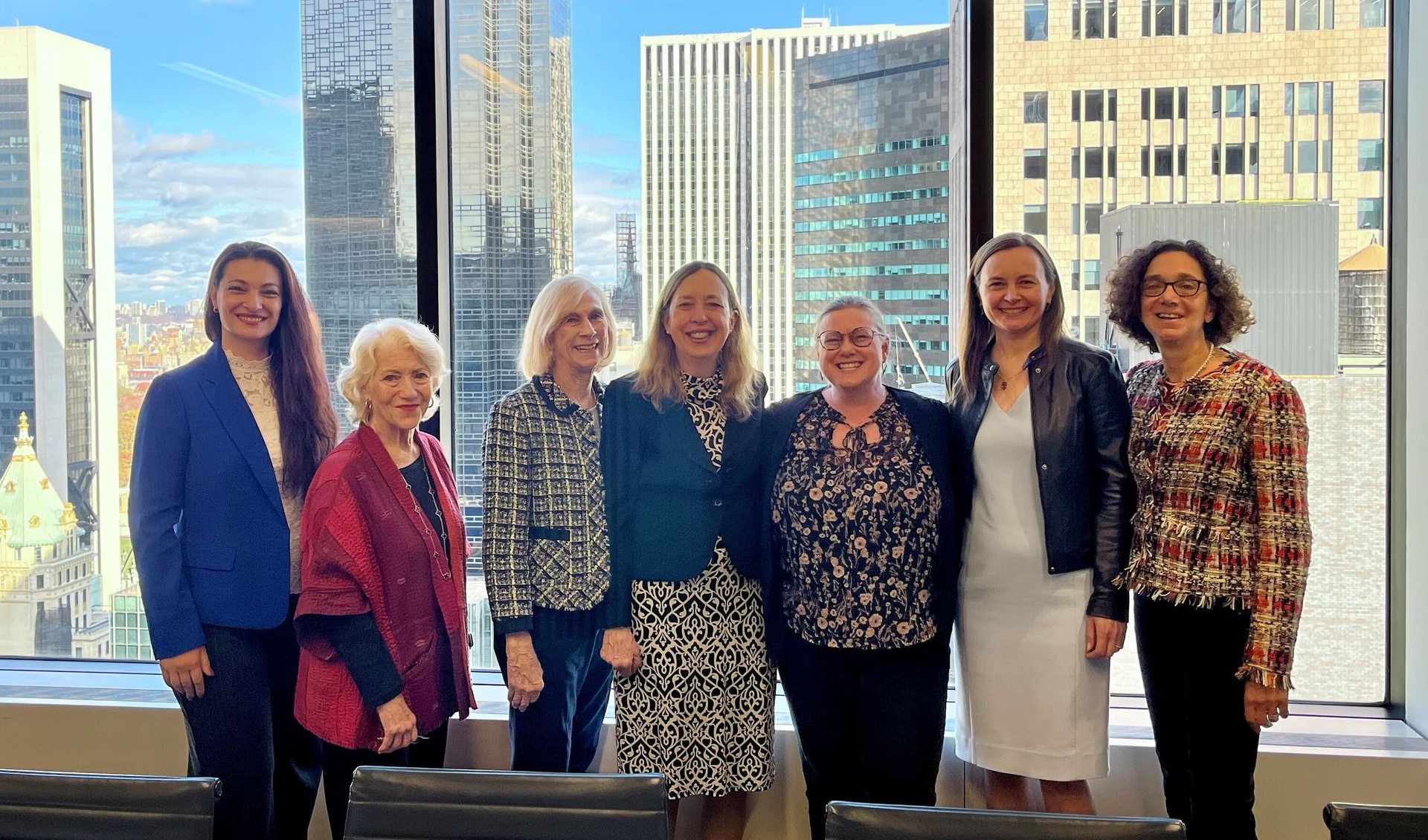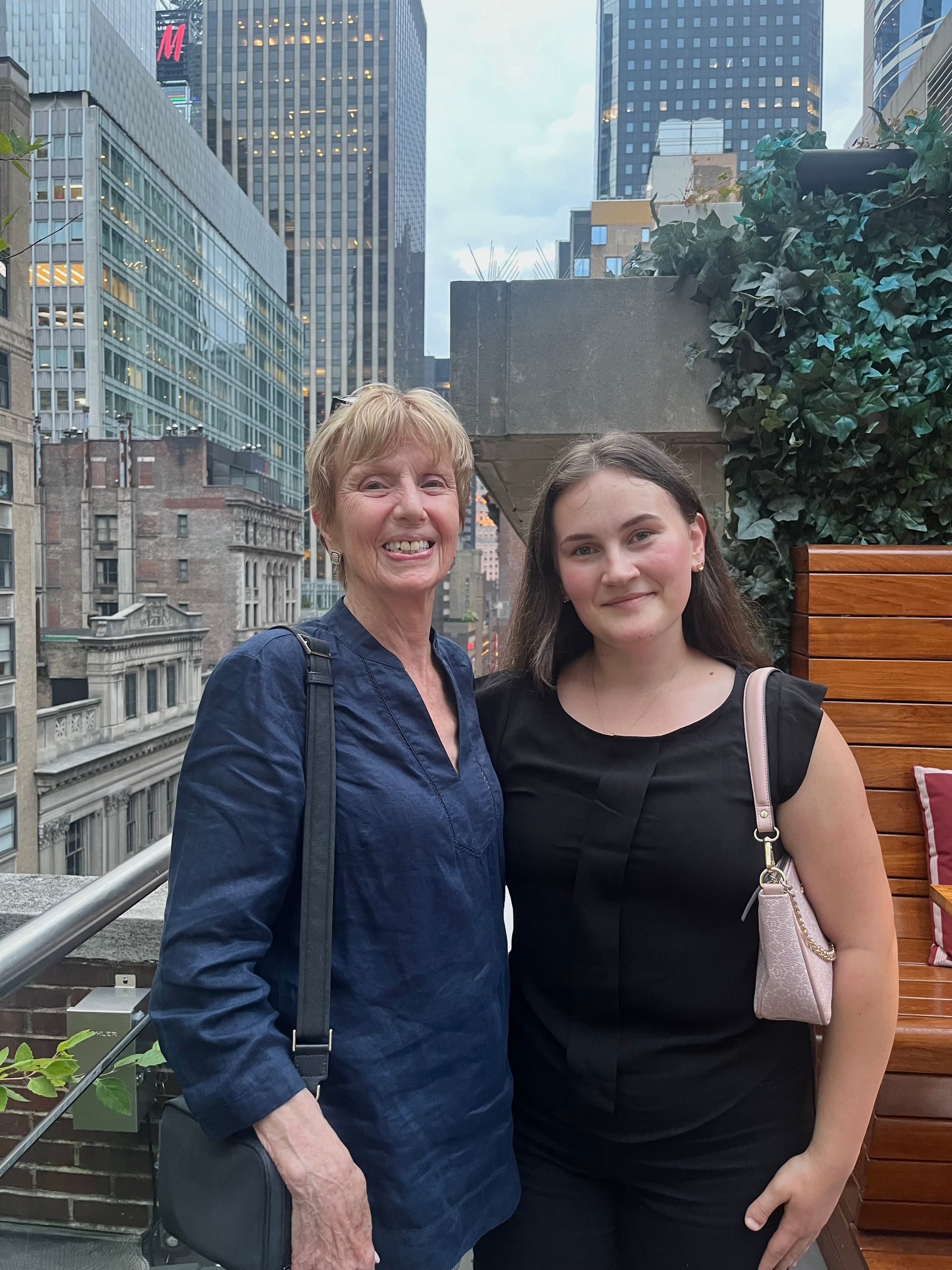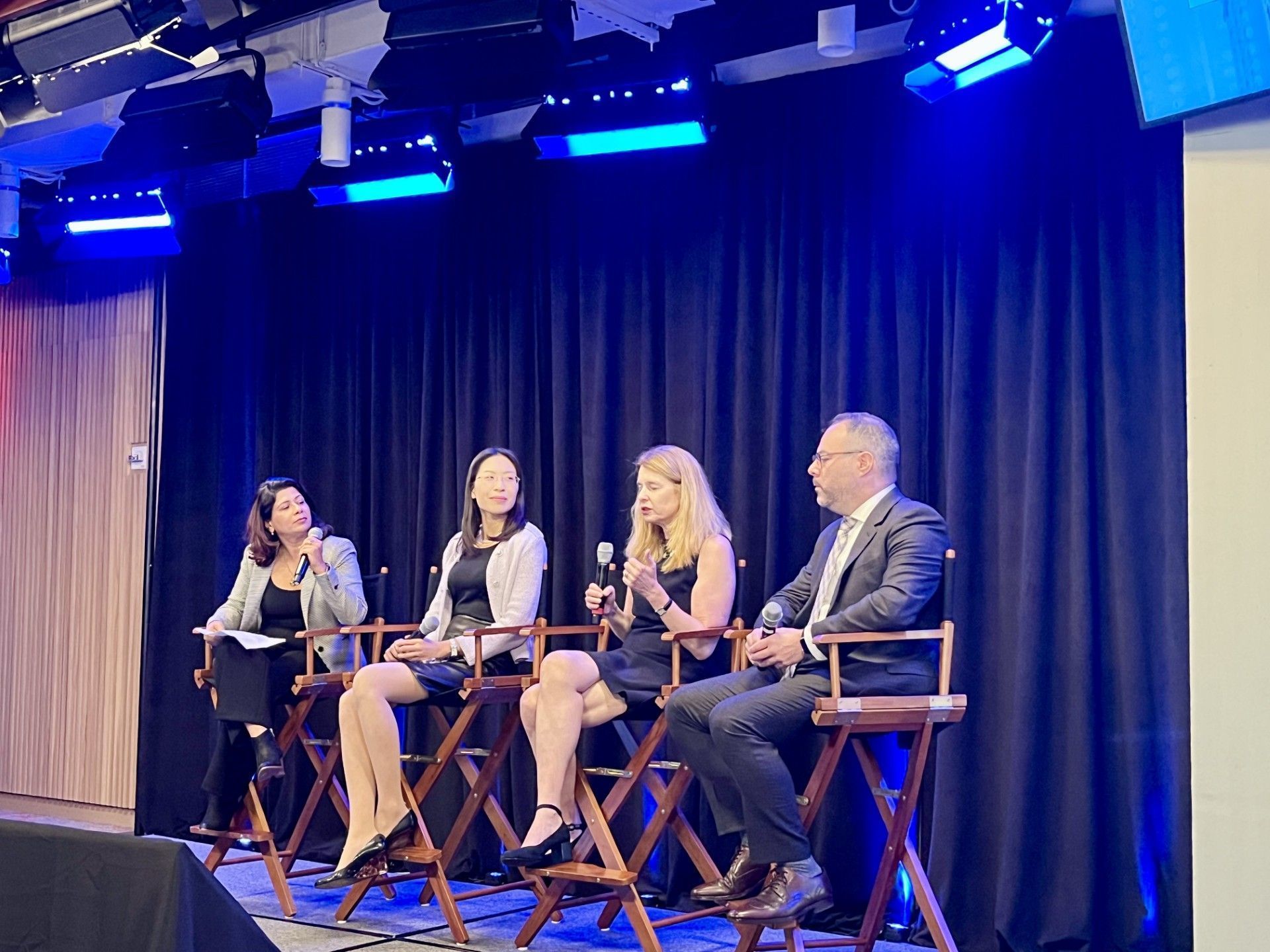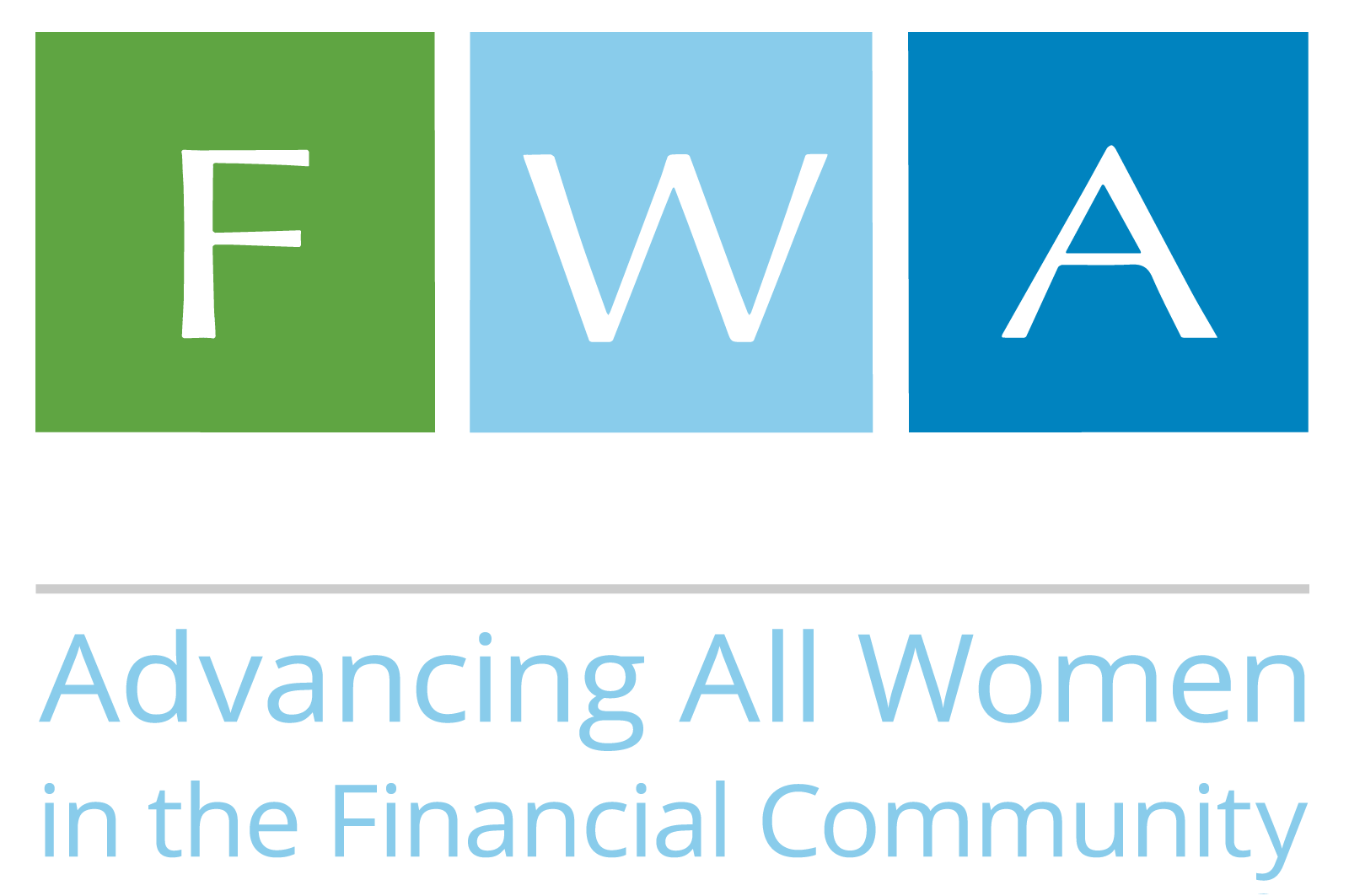Reflections on a lifetime in finance and banking and the value of the FWA
Few people know what they want to be when they grow up, but Nina Batson was not one of them. At two years old, she began memorizing the serial numbers on bills; at five, she toured the Federal Reserve Bank of New York. She launched her banking career right out of high school.
Moments into a conversation with Nina, the FWA’s immediate past president (2023~2025), her passion for finance and banking and her commitment to the FWA being a diverse, equitable, and inclusive organization shines through. Sherree DeCovny, co-chair of the FWA’s Marketing & Strategic Communications Committee, talked to Nina about her career and dedicated service to the FWA over the last 15 years.

Sherree: Nina, please tell us about your career, including the ups and downs you faced.
Nina: Manufacturers Hanover Trust (Manny Hanny) hired me as a drive-through window teller right out of high school, and I worked my way up to coin teller and head teller. I was then transferred from one of Manny Hanny’s Long Island locations to the Park Avenue New York City location, where I worked in Agent Services quality assurance and operations before getting promoted to account manager. Throughout my career, I’ve held positions in asset management, client management, and securitized products. I even traded commercial paper, financed distressed debt for European credits, and worked on many mergers and acquisitions. Today, I serve as Director and Head of Internal Audit Regulatory Engagement at Barclays.
My career wasn’t all smooth sailing. For example, I was in banking when the market collapsed in October 1987 (Black Monday). I lost my job during the Great Bond Massacre of 1994. I was a trader when the financial crisis began in 2007-2008 – luckily, I didn’t lose my job. Unfortunately, I did lose my job again when Covid emerged. Through them all, I walked in faith and knew these setbacks were just hiccups that allowed me to use the upskilling I had learned from FWA events to assist in pivoting my career.
Sherree: What made you join the FWA?
Nina: In 2009, while working at MUFG, I teamed up with six other women and leveraged the FWA to help us set up the firm’s first-ever women’s network. Shortly after that, MUFG became a corporate sponsor of the FWA, and I became their relationship manager.
I went on to serve in other FWA leadership roles, including FWA President 2021-2023; FWA Leadership Council Chair (2019-2021); President-Elect (2019-2021), Executive Vice President (2018); Vice President of Membership and Engagement Division (2017); Membership Chair (2016); Membership Co-chair (2015); and Head of Membership Committee’s Ambassador Program (2014); MUFG/FWA President’s Circle Relationship Manager (2009-2021); and FWA member at large (2009~present).
Sherree: What were your greatest accomplishments and challenges at the FWA?
Nina: A few big wins for me during my presidency included getting four-star General Jacqueline D. Van Ovost to speak to the FWA twice. I became the 58th and first Black president of the FWA during its 65th anniversary, served a two-year term, and held an in-person gala to celebrate being able to come together again. I also held the first International Business Conference post-pandemic in Bermuda.
When I was president-elect, I spearheaded an ad hoc governance committee to assist the FWA in redefining itself during its medium-term plan. This led to the FWA Board being further streamlined and the organization being more sustainable so future leaders and constituents could leverage its legacy for the future. During this process, I met with the amazing FWA past presidents and learned about the intricacies of the FWA's journey. Their input – including desired improvements – allowed us to create a sturdier foundation and a bridge for the next generation of leaders.
I’m a people person who cares deeply about the customer experience. I’ve always been willing to write that eloquent letter, make cold calls, and network to attract people to FWA events – a strategic plan to increase membership organically. When I was FWA President (2021~2023), I ensured the organization went to great lengths to showcase its corporate sponsors, their employees and other like-minded, mission-driven organizations – including active military service members and veterans. I strongly encouraged FWA event organizers from the organization’s Leadership Resource Council to seek out panelists from diverse backgrounds because diversity, equity, and inclusion (DEI) was my top priority. I even nicknamed my theme “I.D.E.A.” - inclusion, diversity, equity, and access – and provided access to many distinguished speakers who had never before partnered with the organization, not only across the financial industry, but globally.
While emphasizing diversity within the FWA and its underrepresented communities, we also held monthly themed Courageous Conversation events, featuring diverse groups and representatives of different cultures and heritages. My overarching goal was to prove that regardless of your role within the financial community, the FWA is here for YOU, a true testimony to the organization’s goals, mission, vision, and values.
My biggest challenge was leading the organization during Covid and resuming in-person events post-pandemic. Although it wasn’t easy, the FWA invested in itself and offered many free virtual events, which were also available for replay for a nominal cost during and after the pandemic. We maintained our mentee-mentor relationships, albeit virtually, and went global with our membership and educational initiatives.
The FWA needed to be there for people, so we offered a “No Member Left Behind” campaign, something I orchestrated with a past president when I was Membership Chair. For example, we advertised the FWA’s membership tiers so people would know that the FWA would be with them every step of the way during the pandemic. We held our events virtually on Zoom, including events to explain the pandemic and help our members care for themselves, friends, and families. During the first pandemic holiday season, we hired a bartender to show us how to make cocktails and mocktails virtually. Everything you needed to celebrate perseverance was mailed to your home.
When we ventured outside again and went back to work post-Covid, I promised the FWA constituents an in-person 65th FWA Anniversary celebration and resumed the FWA’s International Business Conference.
Sherree: How did you benefit from the FWA personally and professionally?
Nina: The FWA afforded me many opportunities to upskill myself and continue to enhance and enrich my career. I now have a more extensive network of amazing women and men to whom I can reach out and vice versa. We know we will always be there for each other.
Sherree: What would you like to see the FWA do in the future?
Nina: Listening to our constituents and knowing what the FWA members want is essential to the organization’s sustainability. This includes routinely providing events related to hot topics impacting the financial services industry and offering personal development opportunities. I also hope the FWA keeps expanding globally beyond holding the International Business Conference annually.





